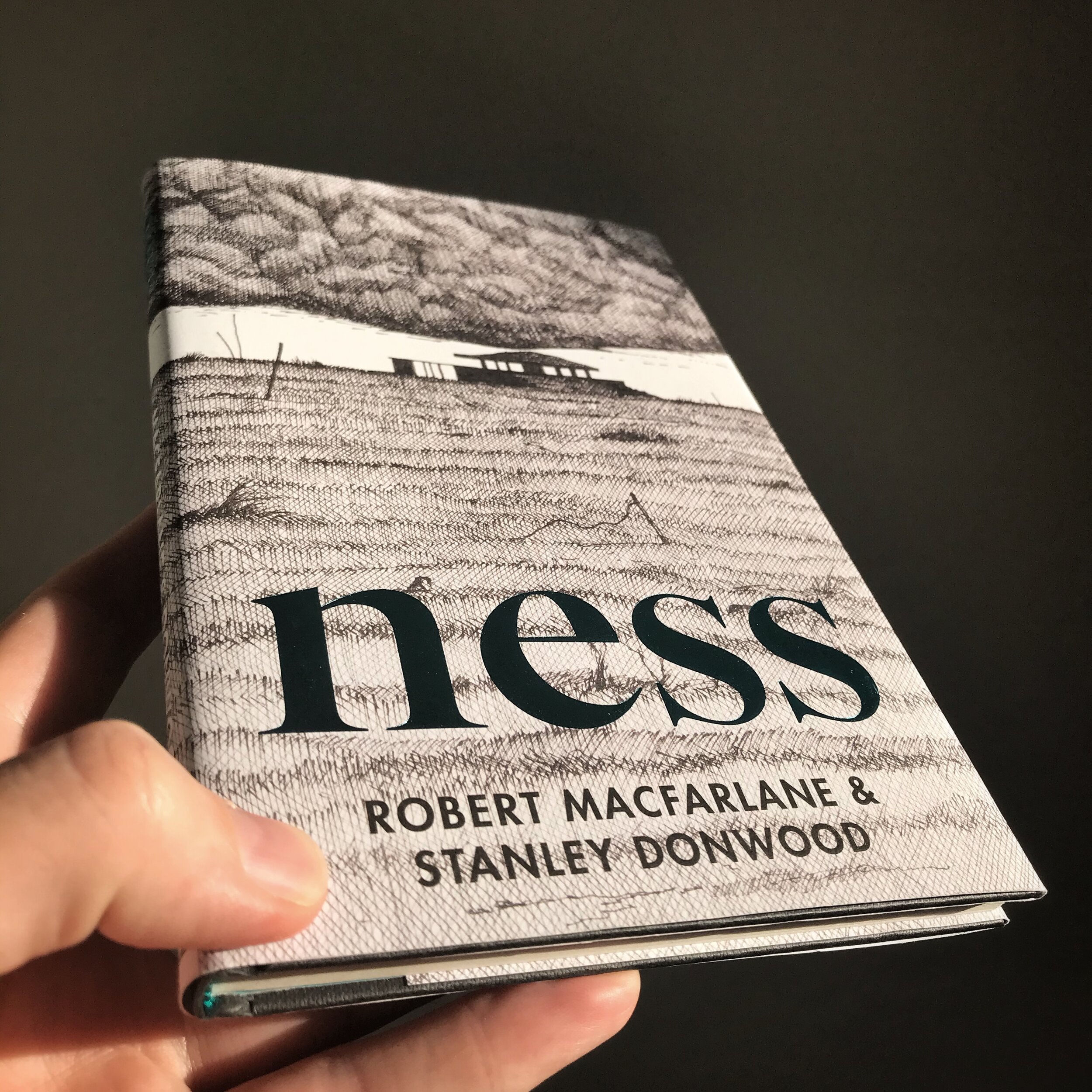Ness
I can't remember reading a book like Ness before. I bought it from the Whitby Bookshop along with a couple of other books – I was on a splurge and it caught my eye. I liked the cover. It sort of looked like it might be about the sea, which attracted me. And, frankly, ness* is a word I just like. I had a quick look at the first page, and the style of writing grabbed me straight away. So I added it to my haul and took it to the counter.
But it was the writing that got me. It's a short book that tells the story of the land rising to defend itself from a bunch of description-worshipping, pseudo-religious cranks who are hellbent on detonating a thermonuclear bomb. Someone somewhere described it as a horror folktale. That’s pretty accurate.
The writing isn’t strictly prose or strictly poetry. It lies somewhere between the two. But like good poetry, it demands the reader brings themself to the work. You're not going to get your money's worth out of this book if you're the kind of reader who likes the writer to make all the effort. Like great art—you have to meet it halfway.
The land comes in the form of five characters: it, he, she, they and as. And it was the way in which these entities manifest themselves and travel towards the final encounter that got me, conjuring themselves out of jetsam and shale, spores and birds, rock and water, insects and just everything else that the surface of the planet is composed of, eventually becoming one (I think).
I didn't realise that Ness was illustrated until I got it home. The illustrations by Stanley Donwood are tremendous and do add a particular atmosphere to the writing, but I could have lived without them. I'm probably missing something there and when I reread Ness, which I'll definitely be doing, I'll think about them some more.
Ness was written by Robert MacFarlane, who is new to me. I'll be seeking out more of his work very soon.
*Ness means headland or promontory, the former being a narrow piece of land that projects from a coastline into the sea, and the latter a point of high land that juts out into the sea. And possible out of a lake. Not sure. Anyway, what I particularly like about the word ness is that it comes from the Old English word 'nasu', which means nose. It’s lovely when words work out like that.
